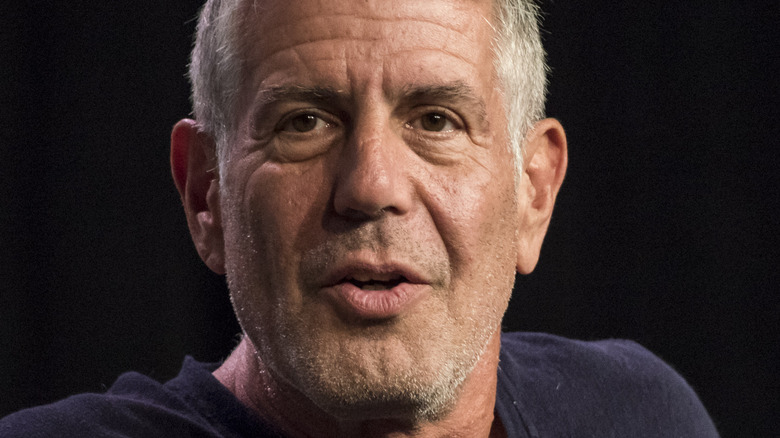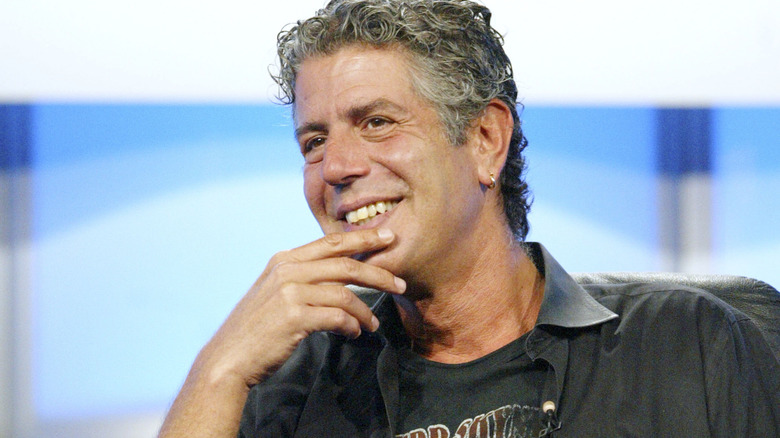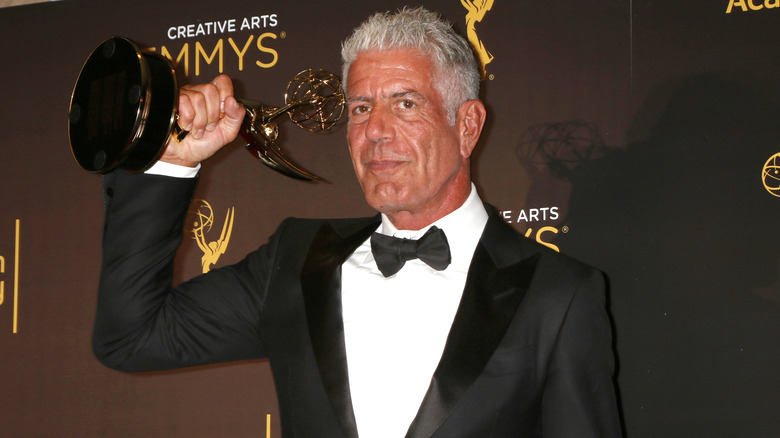Is The 'Bourdain Effect' Real?
The legacy of Anthony Bourdain still seems to be rippling out across oceans, long after his unfortunate death in 2018. His new travel guide was just published, with help from his longtime assistant (via Eater). People will no doubt raise a toast to the celebrity chef on Bourdain Day, celebrated every June 25 (via The Washington Post). And other writers, obviously, keep writing about him. Bourdain's enduring influence, largely due to his popular shows "No Reservations" and "Parts Unknown," has come to be known as the "Bourdain effect." What exactly is this effect, and why might Bourdain's influence over food tourism not be all-enlightening for everyone involved?
As Travel Weekly explained, the Bourdain effect is the new wave of tourism formed by people who want to go where Bourdain went and eat what he ate. It's difficult to see to what extent exactly Bourdain and other celebrity food travelers have directly influenced travel in general. But it's clear that the exposure given to off-the-beaten-path, or maybe off-the-beaten-country destinations has excited people about making trips to places they might not have visited otherwise.
The Bourdain effect can be measured, but it's also a state of mind
Depending on where you look, there might be a slight difference in definitions, when it comes to the Bourdain effect. In a remembrance piece, The Manual describes Bourdain's so-called effect as something more meaningful than that of your typical celebrity chef, travel writer, or food blogger. Anthony Bourdain, like few others, brought a certain level of realness to the table. Bourdain was a proponent of open minds, whether it be in regards to travel or food — or better yet, the combination of the two.
Eater measures the "Bourdain effect" in terms of how he created newfound interest in places he'd visited, citing an 88.8% spike in internet searches for Sicily after an episode in which he visited the island. The Manual, on the other hand, focused more on Bourdain's love for travel as exploration — whether it be in the middle of the jungle or a dive bar in the next town over. But despite his love for diversity in food and tourism, not all of Bourdain's effects are necessarily seen in a positive light.
The Bourdain effect can have drawbacks
A report by the University of Central Florida begs the question as to whether the food tourism that Bourdain championed is always a good thing. Yes, there are plenty of positive aspects. Food tourism, which is now more popular than ever thanks to social media, can help a lot of low-income areas, providing new jobs and opportunities. This is not without potential drawbacks, however.
In impoverished places, food tourism's cons may outweigh the pros. While a meal for a television personality and crew might not create much change in a community, an influx of tourists chasing the same authentic food experience could drain already scarce resources, potentially leaving locals in a worse position than before. Another possible effect is that catering to tourists could increase prices in a community and drastically change it for those who live there (and those who came to visit after seeing that episode of "Parts Unknown"). Even if we don't know to what extent, the Bourdain effect seems to be having a real impact on travel, as more reservations seem to be needed, and less parts are unknown.


